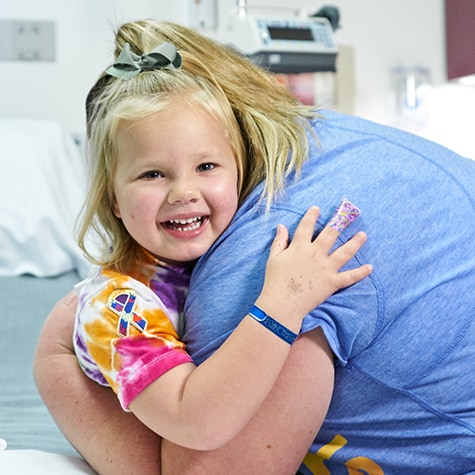Concussion toolkit
Our concussion toolkit is a collection of materials created by Children’s Healthcare of Atlanta and designed to help you manage concussions in your practice. You will find:
- A tool for assessing concussions and mild brain injuries.
- Emergency department referral and CT scan criteria.
- The Glasgow coma scale.
- Red flags and signs that a concussion is serious.
- A cognitive rest and academic recovery plan and sample letters.
- Sample return-to-play and return-to-game letters.
Download our concussion tool kit
Concussion video series
Take advantage of this online learning opportunity, and watch videos on concussion prevention, diagnosis, treatment and scenarios.
2019 concussion conference videos
These videos include helpful information from our concussion experts around concussion recognition, prevention and strategies for returning to back school and sports. Listen to a real patient family experience of second impact syndrome, and hear keynote speaker Steve Wallace, former NFL player for the San Francisco 49ers, talk about his own experience with concussions.
This conference was made possible by the generous support of Andee's Army Child Brain & Spinal Cord Foundation. Andee's Army is an Atlanta-based 501(c)3 non-profit dedicated to funding the recovery and rehabilitation of children who have sustained brain and spinal cord injuries.
- 2019 Concussion Conference Summary, Andrew Reisner, MD, FACS, FAAP
Learn more about Children’s Healthcare of Atlanta’s concussion program and our tools, research and partnerships within the community. A special thanks to our conference supporter, Andee’s Army Child Brain & Spinal Cord Foundation.
- Overview and Brief Pathophysiology of Pediatric Concussion, David Marshall, MD
- Recognition and Initial Steps, Joshua A. Vova, MD
- Return to School Strategies, Thomas G. Burns, PsyD, ABPP
- Pitfalls in Recovering Due to Headaches, Barbara M. Weissman, MD
What is a concussion? The concussion numbers have been rising rapidly over the past 10 years. It is time to increase awareness and educate people about concussions.
In this session you will learn the common diagnosis and symptoms of a concussion.
In this session you will learn about cognitive rest, educational accommodations, school transition and 5 steps to follow before returning to school after a concussion.
In this session you will learn how to identify, understand and distinguish risk factors and the appropriate approach in evaluation following a concussion.
- Strategies for Returning to Sports, David Marshall, MD
- An Introduction to Biomarkers for Concussion, Laura S. Blackwell, PhD
- Prevention/Protection: Where Are We Headed?, Thomas G. Burns, PsyD, ABPP and Joshua A. Vova, MD
In this session you will learn the steps and stages as to when it is safe to return back to sports and activities after a concussion.
In this session you will learn the latest in concussion research, treatment and management, including biomarkers.
In this session you will learn more about helmet selection, mouth guards, soccer head bands, neck collars and other ways to help reduce the risk of concussion in sports.
- Vestibular Therapy, Kelly Peczka, MSTP; Kaitlin Sipos, AuD; Kenneth “Allen” Jarratt, PT, DPT, OCS, MTC
In this session you will learn the impact of concussion on the vestibular system and what happens when this system is disrupted.
A child or teen should recover and be symptom-free—at rest and with physical exertion—before returning to sports or other activities. These tools can help patients determine when it is safe.

Our mission is to facilitate research to help improve treatment and outcomes
We are working to find out more about concussion, its possible effects and how best to help patients fully recover. Your patients might benefit from participation in one of our research projects.
Learn moreContact Us 404-785-KIDS (5437)